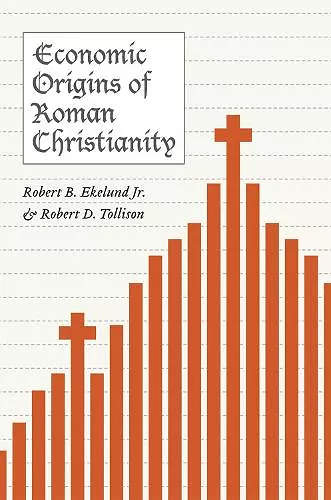Economic Origins of Roman Christianity
Robert B Ekelund Jr author Robert D Tollison author
Format:Hardback
Publisher:The University of Chicago Press
Published:19th Aug '11
Currently unavailable, and unfortunately no date known when it will be back

In the global marketplace of ideas, few realms spark as much conflict as religion. For millions of people, it is an integral part of everyday life as reflected by a widely divergent supply of practices and philosophical perspectives. Yet, historically, the marketplace has not always been competitive. While the early Common Era saw competition between Christianity, Judaism, and the many pagan cults, Roman Christianity eventually came to dominate Western Europe. Using basic concepts of economic theory, Robert B. Ekelund Jr. and Robert D. Tollison explain the origin and subsequent spread of Roman Christianity, showing first how the standard concepts of risk, cost, and benefit can account for the demand for religion. Then, drawing on the economics of networking, entrepreneurship, and industrial organization, the book explains Christianity's rapid ascent. Like a business, the church developed sound business strategies that increased its market share to a near monopoly in the medieval period. This book offers a fascinating look at the dynamics of Christianity's rise, as well as how aspects of the church's structure - developed over the first millennium - illuminate a number of critical problems faced by the church today.
"Economic Origins of Roman Christianity takes us on a sweeping tour of a millennium, introducing us to Saint Paul as entrepreneur, the Nicaean Council as product strategy, and Charlemagne and Pope Leo III as masters of vertical integration. Using economic models, the authors narrate a history of religion that adds a new dimension to our typical view of the political, military, and theological origins of Christianity. There is much here for economists to ponder and enough storytelling to keep history buffs going." (Larry Witham, author of Marketplace of the Gods: How Economics Explains Religion)"
ISBN: 9780226200026
Dimensions: 24mm x 16mm x 2mm
Weight: 539g
288 pages